
Undergraduate courses
Develop a range of laboratory and field skills through an undergraduate degree in the Department of Earth and Environmental Sciences.
Study subjects you’re passionate about, including climate science, ecosystem conservation, micro-plastic pollution, dinosaur evolution, volcanoes, Earth’s formation and the distribution of resources within it. With fantastic research-led and field-based teaching, a degree in the Department of Earth and Environmental Sciences ensures that you will acquire desirable transferable skills from our undergraduate courses, leading to excellent employability.
We work closely with graduate employers to ensure that when you successfully complete our courses you will be in an enviable position for graduate employability. We focus on developing the skills desired by graduate employers: a passion for learning, multidisciplinary problem-solving, team-working, communication skills, numeracy and programming.
How the courses work
In the first year, both the Earth and Planetary Sciences degrees, and the Environmental Science degrees take the same course units. These span the breadth of the natural sciences and allow you to change between any of our degrees up until the end of your first year while you discover where your interests lie.
After the first year you select one from nine possible pathways through the subject (six in the Earth and Planetary Sciences and three in the Environmental Sciences). Our traditional Geology degree is the Geology Pathway in the Earth and Planetary Science degree course.
If you study for three years, you will graduate with a BSc degree either in Earth and Planetary Science or in Environmental Science, with your chosen pathway named in brackets after this title.
Both degree courses may be extended to four years (MEarthSci and MEnvSci) to give you significant extra research or vocational experience that will make you more attractive to future employers in both academia and industry. You may also switch (grades permitting) between the three- and four-year variants of your course at any time through to the end of the third year.
Our degree pathways
The degree you choose will determine the pathways available to you from your second year. Find out more about the pathways we offer below.
Earth and Planetary Science Pathways (BSc and MEarthSci degrees)
Geology
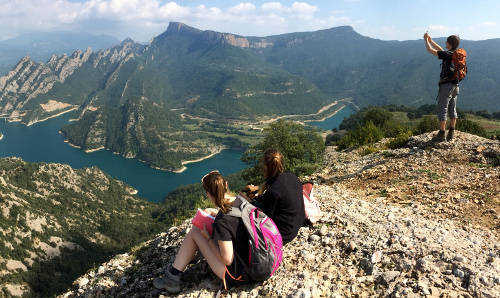
The Earth's rocks and minerals preserve a 4.5 billion year record of global change. In this pathway you'll learn how to read that rock record and develop an understanding of the physical processes responsible for it. For geologists our primary lab is the great outdoors and so this pathway has a strong fieldwork emphasis, with particular attention on making and recording field observations and measurements that can be interpreted in terms of active geological and environmental processes.
You'll also develop skills in laboratory-based analyses to add a richer level of detail to those interpretations. For those with an interest in a geotechnical career, we offer the opportunity to specialise in engineering geology and hydrogeology.
Visit our Geology at Manchester page to find out more.
Geochemistry
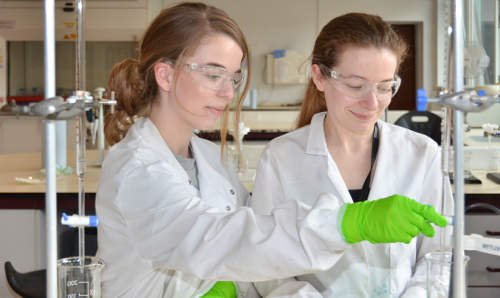
Understanding the chemistry of the Earth is fundamental to challenges such as managing resources like precious minerals and oil, understanding climate change at
the molecular level, and the control of pollution.
In this pathway you'll study the composition and evolution of the planets, melting and mineral reactions in the Earth's interior, and the Earth's (bio)geochemical cycles. You'll acquire the laboratory and practical skills of a professional geochemist while having frequent opportunities to practice and apply what you learn on field trips and by undertaking a laboratory-based independent project.
Planetary science
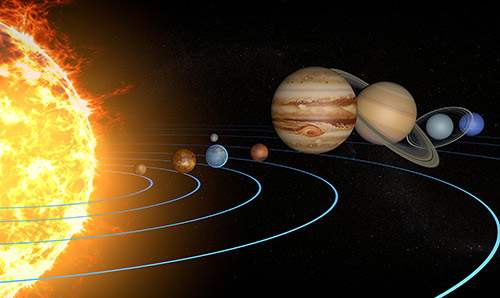
It is an exciting time to study planetary science; missions to the other planetary bodies in our solar system and our newfound ability to study planets orbiting other stars are allowing us to consider whether planets like the Earth are widespread or rare in the Universe.
In this pathway you'll gain the skills of a professional geologist while pursuing a broader interest in planetary science, developing an understanding of how the Earth and other planets have been shaped by the prehistory, formation and evolution of our solar system. You'll also have the opportunity to study aspects of astronomy and astrophysics to complement your understanding of geology and Earth system science.
Energy and resources
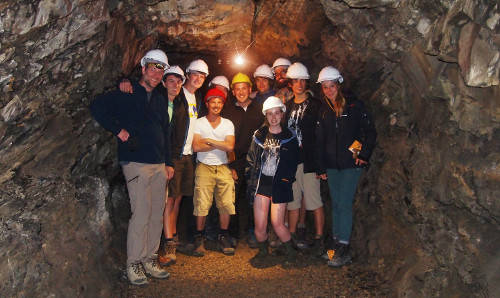
Earth's energy and resources have shaped human development and societies for millennia. In this pathway you'll study units that are focused on resource formation, ranging from metal and hydrocarbon resources to nuclear energy and groundwater resources.
You'll also study sustainable and efficient extraction of resources, while acquiring the skills suitable for a thriving energy and resources job market.
Palaeobiology
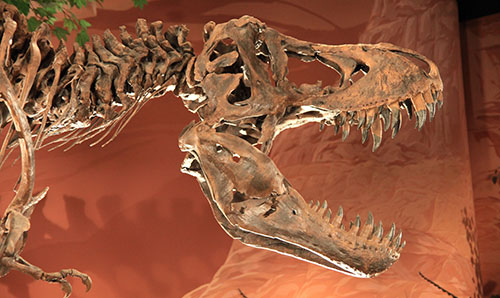
Palaeobiology addresses major questions relating to the Earth's living systems, their interplay over geological time, and the genesis and evolution of today's living world. This pathway takes an interdisciplinary approach, combining the study of the biodiversity and ecology of modern and ancient life with training in the geological processes that shape the history and future of Earth.
You'll gain a broad range of essential geological and biological skills, while studying modern techniques and the latest research in palaeobiology and evolution - from the origins of life and the age of dinosaurs to the rise of modern humans.
Environmental Science Pathways (BSc and MEarthSci degrees)
Pollution and environmental processes
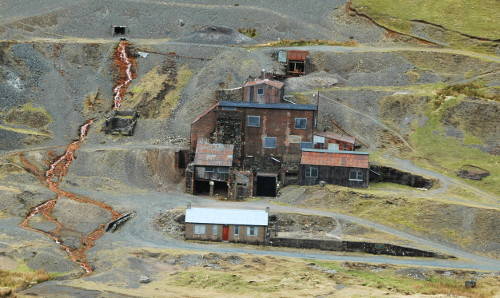
The study of pollution and environmental processes is essential as growing populations and higher standards of living place increasing pressure on our engineered and natural environment.
On this pathway you'll study climate change, biodiversity and environmental management, pollution and control, population dynamics, ecosystems and urbanisation, tackling some of the global grand and pressing problems that will ensure human needs are met in a sustainable way.
If you enjoy biology, chemistry and geology and have a keen interest in the environment, you can integrate your interests in these subjects within the pollution and environmental processes pathway.
Atmospheric and climate science

Understanding the atmosphere allows us to address a wide range of societal and environmental issues, including weather forecasting, urban air quality, pollutant transport and climate change. On this pathway you'll focus on the atmosphere and its relationship to the Earth system, as well as to society.
From theoretical concepts to modern technological applications, you'll explore the driving forces at work in our atmosphere and the feedback interactions between the atmosphere, oceans, solid earth and biosphere, over a range of temporal and spatial scales, from weather forecasting and urban air quality to climate change.
Ecology, evolution and conservation biology
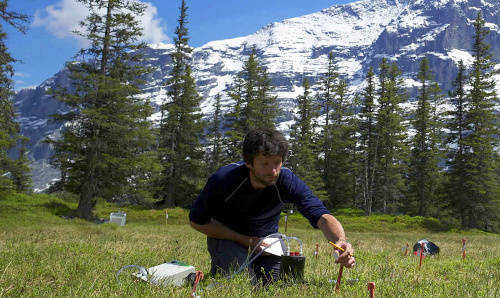
The Earth is the only known planet supporting life. The history of the Earth is intertwined with the history of life, and the world is both shaped by, and shapes, the organisms alive today. This pathway focuses on understanding those relationships.
You'll study evolution and examine how the diverse range of organisms alive today came to exist; ecology, which looks at the interactions of organisms and their environment; and conservation, which involves studying how humans impact on nature and how we can change our behaviour to reduce that impact. On this pathway you'll take units shared with biological sciences to gain a truly interdisciplinary understanding of life on Earth.
